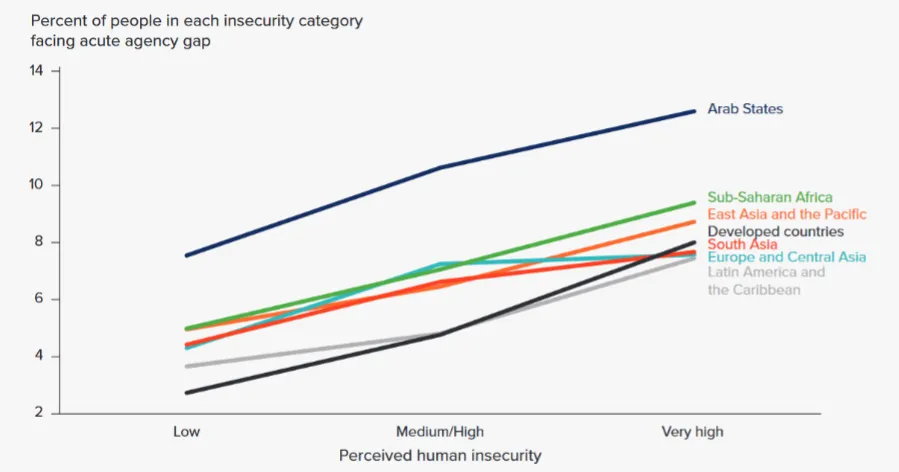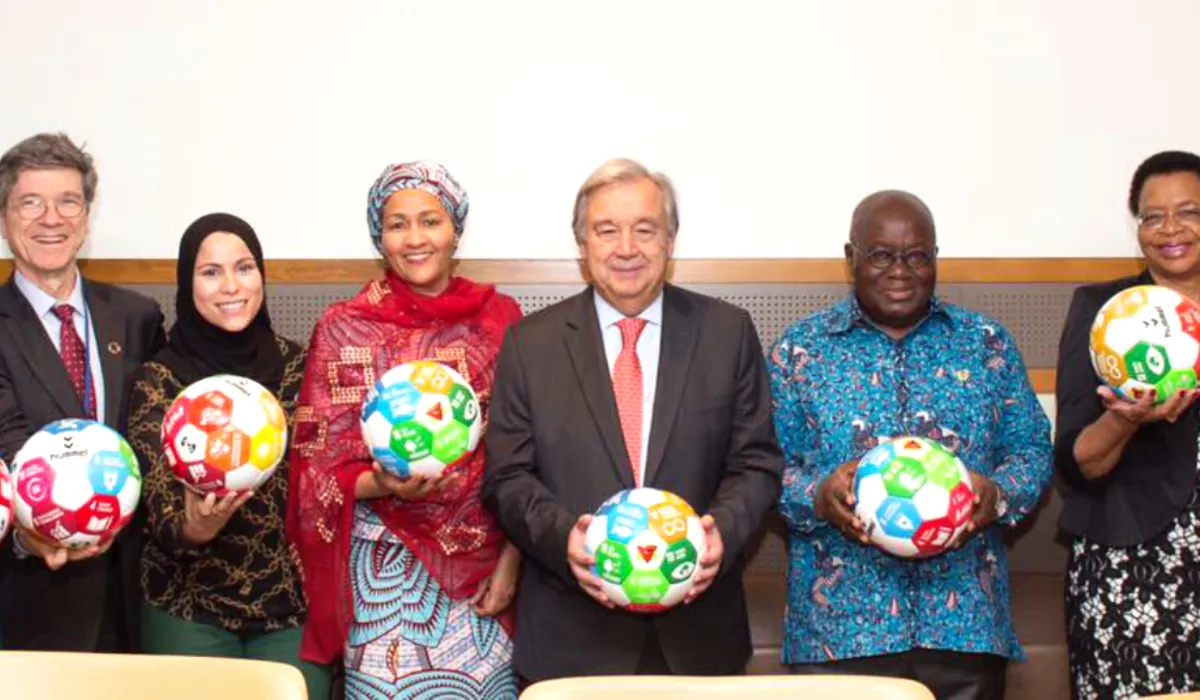“We can do better than this.” That’s the rallying cry echoed throughout the 2023/24 Human Development Report titled, Breaking the Gridlock: Reimagining Cooperation in a Polarised World. The report presents a narrative shift – going beyond pointing out gaps, problems, and challenges to prompting us to think about our collective responsibility for action. Our existential survival depends on this action. If we persist in polarisation, vulnerabilities deepen, crises worsen, and global inequalities widen. This isn’t just a warning—it’s a wake-up call demanding global cooperation and collective action. The consequences of an alternative will be far-reaching, transcending national borders. This is not a hypothetical scenario. It is a pressing reality that demands collective action and cooperation on a global scale.
The report’s findings are not groundbreaking, but they paint a bleak picture. While most developed countries have bounced back from COVID-19, many countries, notably in Africa, still struggle to reach pre-pandemic levels. This uneven recovery underscores a harsh truth: the deep-seated structural vulnerabilities of developing countries; the lopsided distribution of economic resilience worldwide; and the international community’s current strategies are falling short.
Prioritising inclusive, accountable governance and transformative leadership through participatory democracy is non-negotiable for advancing human development in developing economies.
Tweet
One crucial finding of the report is the relationship between human insecurity and diminished agency. When people live in fear, want and indignity, their ability to make choices that promote their own development is severely limited. This insight is a clarion call for the international community to prioritize human security in its investments, governance, and partnerships. We must understand that fostering human security is not just an ethical imperative, but a foundation for sustainable development.

Source: 2023/24 Human Development Report, Breaking the Gridlock: Reimagining Cooperation in a Polarized World (p.153)
The report acknowledges an often-overlooked paradox of democracy. It reinforces the findings from the United Nations Development Programme (UNDP) Soldiers and Citizens report, which sought to explain the recent history of eight successful coups in Africa since 2020 through an unprecedented citizen survey of 8000 respondents. Noting that, while freedom of choice, which is one of the unique value propositions of democracy, remains popular the abuse of democratic governance in some contexts has increased the risks of disruptive political transitions, including in the form of military coups. The Soldiers and Citizens findings suggest that the recent resurgence of military coups is not an indictment against democracy but manifests a demand and call for decisive, capable and transformative governance and leadership. It also suggests an emerging frustration with the international community to stand with the people amid poor governance with tacit support for leaders who have undermined or exploited democratic structures for their own gain.
Advancing South-South cooperation to boost trade, knowledge and resources exchanges in multidimensional sectors will be crucial.
Tweet
Prioritising inclusive, accountable governance and transformative leadership through participatory democracy is non-negotiable for advancing human development in developing economies. It is time to make this our collective priority. The report can draw inspiration from the recent establishment of the Africa Facility to Support Inclusive Transitions, a co-creation between UNDP and the African Union to support countries in transitions, as an innovative tool for consolidating democratic promotion and enhancing governance.
The report reframes challenges into opportunities for human development, urging the international community to scrutinize investments and actions to truly enhance human security and advocates leveraging global cooperation as a global public good.
What is the path to enhanced human development especially for developing countries amid the gridlock and polarisation? The Human Development Report points to the vast untapped potential for regional cooperation to reduce poverty and transcend polarisation. Advancing South-South cooperation to boost trade, knowledge and resources exchanges in multidimensional sectors will be crucial. According to UN Trade and Development (UNCTAD), South-South merchandise trade grew from US$0.6 trillion to US$5 trillion between 1995 to 2017. Other sectors such as agriculture, technology, energy, and finance could significantly benefit from such cooperation. Initiatives such as the Brazil-Russia-India-China-South Africa (BRICS) bloc, G20 and, the recent discourse on the establishment of the African Union Financial Institutions could hold renewed promise for breaking the development gridlock if they help to influence and shape the reinvention of the global financial architecture to better serve developing countries. The African Union’s recent membership of the G20 is a real opportunity for the active advocacy, participation, and leadership by African leaders to advance the collective vision to reduce poverty and advance the Sustainable Development agenda.
Anchored in empirical research and presented in an accessible format, the report articulates a timely call to action for the international community: there is no better time or opportunity for making gains than today.
Dr Jide Martyns Okeke is the Coordinator of the United Nations Development Programme (UNDP), Regional Programme for Africa in Addis Ababa, Ethiopia


